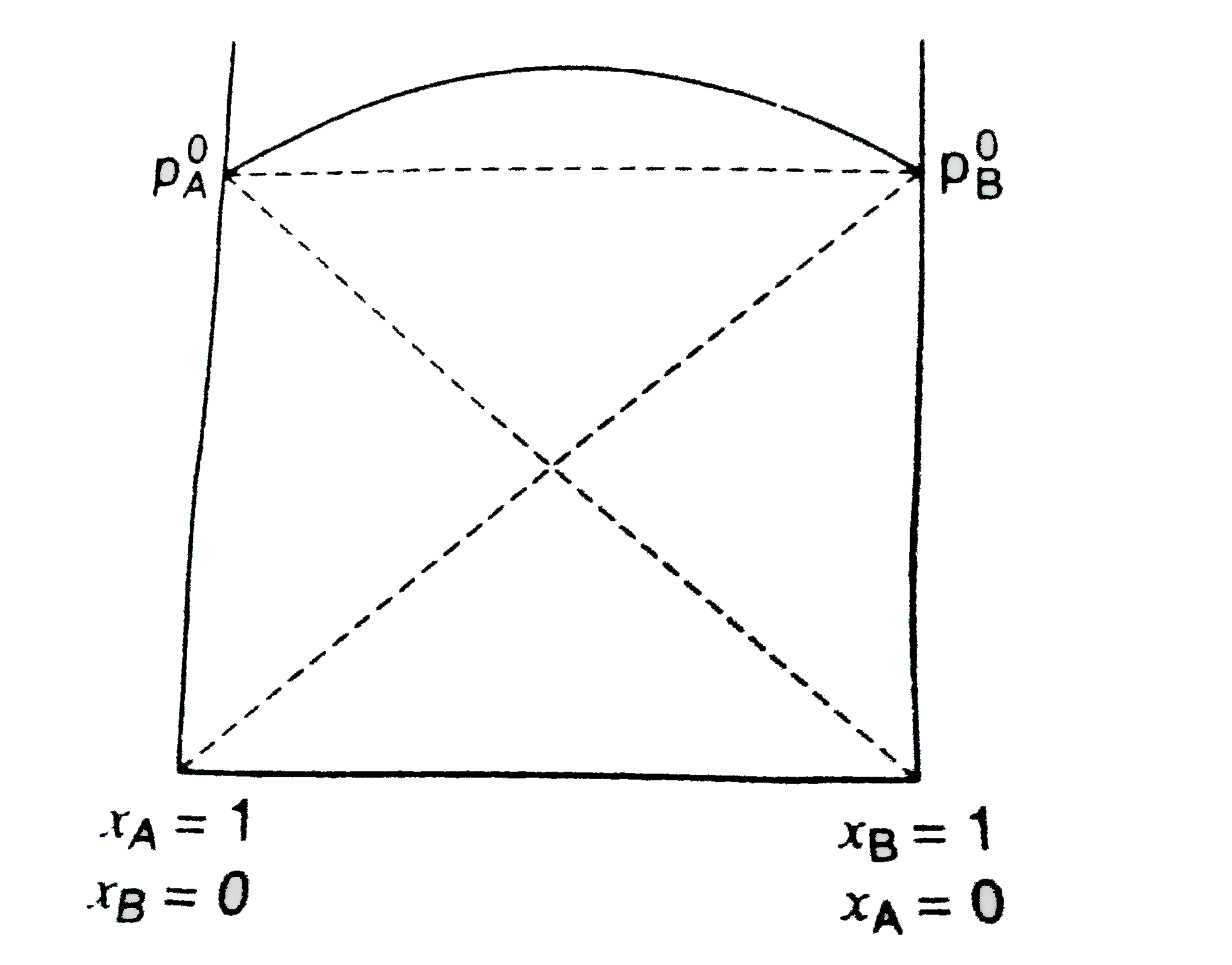Complete Solutions to Set-2 (Level-A) of chapter SOLUTIONS (GENERAL AND COLLIGATIVE PROPERTIES) of Class 11 book with complete answers and questions
| Class 11 | CHEMISTRY |
| Chapter | SOLUTIONS (GENERAL AND COLLIGATIVE PROPERTIES) |
| OP TANDON | Set-2 (Level-A) |
| Number Of Questions | 22 |
| Academic Year | 2023-24 |
The given graph indicates :

View SolutionWhich is the correct statement ?
View SolutionA certain non-volatile substance (non-electrolyte) contains 40%C, 6.7%H, 53.3 % O. An aqueous solution containing 5% by mass of the solute boils at `100.15^(@)C`. Molecular formula of the compound is :
View SolutionA difference between diffusion and osmosis is
View SolutionFor a non-volatile solute
View SolutionIn which of the following cases does osmosis take place if the solutions are separated by a semipermeable membrane ?
View SolutionMatch the following :
`{:(,"Solute (equimolar)",,pi"(OP)ratio"),("(i)","Urea, glucose, fructose","(A)",1:0.8:1),("(ii)","NaCl,mgCl"_(2)",K"_(2)"SO"_(4),"(B)",1:2:3),("(iii)",Al_(2)(SO_(4))_(3)","Na_(3)PO_(4)","K_(4)Fe(CN_(6)),"(C)",1:1:1),("(iv)","Glucose, NaCl, CaCl"_(2),"(D)",2:3:3):}`
View SolutionMatch the following graph :

A (i) (+) deviation
B (ii) Ideal ltbvrgt C (iii)(-) deviation.
View SolutionVapour pressure of methyl alcohol and ethyl alcohol solutions is represented by `P = 115 x_(A)+140` where `x_(A)`is the mole fraction of methyl alcohol. The value of `underset(x_(A)rarr0)(lim)(P_(B)^(0))/(x_(B))` is:
View SolutionTo `10 mL` of `1 M BaCl_(2)` solution `5mL` of `0.5 M K_(2)SO_(4)` is added. `BaSO_(4)` is precipitated out. What will happen?
View SolutionWhich is a dimensionless quantity ?
View SolutionWhich of the following concentration terms is/are independent of temperature ?
View SolutionIn the depression of freezing point experiment, it is found that the:
View SolutionWhich of the following is/are correct for a solution of a particular concentrations ?
View SolutionEffect of adding a non-volatie solute to a solvent is"
View SolutionWhich of the following form/s an ideal solution ?
View SolutionOsmotic pressure of a solution is :
View SolutionWhich of the following is/are true ?
View SolutionIn the following questions, more than one of the answers given may be correct. Select correct answer and mark it according to the code :
A solution containing components A and B exhibits positive deviation from Raoult's law only when
(1) `Delta V_("mixing")=+ve`
(2) `Delta H_("mixing")=-ve`
(3) A - B attraction forces `lt A - A and B - B` attraction forces
(4) A - B attraction forces `gt A - A and B - B` attraction forces.
View SolutionConsider the following statements in respect of an ideal solution :
1. Raoult's law is valid for an ideal solution over the whole concentration range
2. Enthalpy of mixing is zero, i.e., `Delta H_("mix")=0`
3. Volume of mixing is not zero, i.e., `Delta V_("mix")ne 0`
4. The components of ideal solution cannot be separated by fractional distillation
Which of the statements given above is/are correct ?
View SolutionConsider the following :
At constant pressure, boiling point of a solution is greater than the boiling point of its pure liquid solvent because
1. Solute is non-electrolyte
2. Solute is involatile
3. Chemical potential of solvent in solution is less than the chemical potential of solvent in its pure state at constant pressure
Which of the above are correct ?
View SolutionWhich values can be obtained from the information represented by the vapour pressure curve of a liquid ?
1. Normal boiling point
2. Normal freezing point
3. Enthalpy of vaporisation
View Solution
Set-2 (Level-A) questions and complete solutions for chapter SOLUTIONS (GENERAL AND COLLIGATIVE PROPERTIES) of G.R. BATHLA & SONS CHEMISTRY (HINGLISH) of Class 11